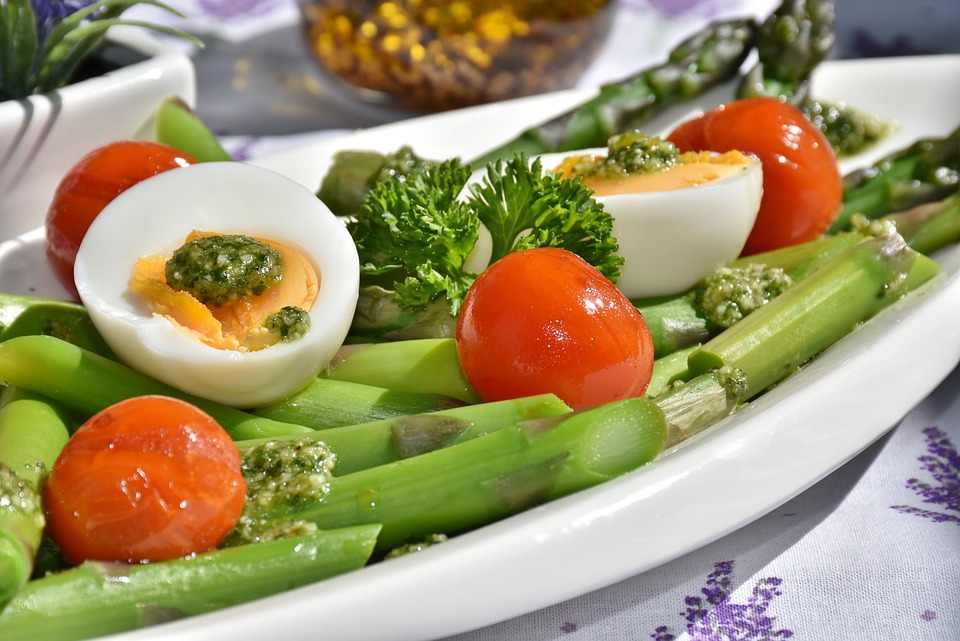the Need for gastric Bypass NSAID Alternatives
Gastric bypass surgery has emerged as an effective treatment for obesity and related health conditions. However, individuals who undergo this procedure often face challenges when it comes to managing pain and inflammation. Nonsteroidal anti-inflammatory drugs (NSAIDs), commonly used to alleviate pain, can have adverse effects on the digestive system, especially after gastric bypass surgery. In this article, we will explore the need for gastric bypass NSAID alternatives and discuss five potential options.
The Perplexity of Post-Op Pain Management
Post-operative pain management is a critical aspect of gastric bypass surgery recovery. Pain and inflammation can hinder the healing process and negatively impact the patient’s overall well-being. However, traditional NSAIDs, such as ibuprofen and aspirin, may not be suitable for individuals who have undergone gastric bypass surgery.
The burstiness of pain experienced by patients after gastric bypass surgery requires an alternative approach to pain management. It is essential to find solutions that effectively alleviate pain without compromising the patient’s digestive health.
Exploring Alternative Options
1. Acetaminophen (Tylenol): Acetaminophen is a commonly used over-the-counter pain reliever that can be an alternative to NSAIDs for gastric bypass patients. It works by blocking pain signals in the brain, and unlike NSAIDs, it does not typically cause stomach irritation or bleeding. However, it is important to follow the recommended dosage and consult with a healthcare professional before using acetaminophen.
2. Topical NSAIDs: While oral NSAIDs can have adverse effects on the digestive system, topical NSAIDs can offer localized pain relief without significant absorption into the bloodstream. These creams, gels, or patches can be applied directly to the affected area, minimizing potential digestive side effects. However, it is crucial to consult with a healthcare professional before using any topical NSAIDs.
3. Physical therapy and exercise: In some cases, pain and inflammation can be managed through physical therapy and exercise. Low-impact activities, such as swimming or cycling, can help improve strength, flexibility, and overall well-being without putting excessive strain on the joints. Physical therapy sessions may also include techniques like massage or ultrasound therapy to alleviate pain and inflammation.
4. Alternative therapies: Some individuals find relief from pain and inflammation through alternative therapies such as acupuncture, chiropractic care, or herbal remedies. While the effectiveness of these approaches may vary from person to person, they can be worth exploring under the guidance of a trained professional.
5. Prescription alternatives: In certain cases, healthcare providers may prescribe alternative pain medications, such as tramadol, for gastric bypass patients. These medications work differently than traditional NSAIDs and can provide pain relief without causing digestive issues. It is crucial to follow the prescribed dosage and consult with a healthcare professional before starting any new medication.
The Importance of Consultation and Individualized Care
When considering gastric bypass NSAID alternatives, it is crucial to consult with a healthcare professional who is familiar with the patient’s medical history and specific needs. Each individual’s pain management requirements may vary, and a personalized approach is necessary to ensure the best possible outcome.
Moreover, patients should actively engage in discussions with their healthcare providers, asking questions and expressing any concerns they may have. By actively participating in their care, patients can work together with healthcare professionals to find the Most suitable gastric bypass NSAID alternatives.
conclusion
Gastric bypass surgery can significantly improve the health and well-being of individuals struggling with obesity. However, managing pain and inflammation after the procedure requires careful consideration of NSAID alternatives. By exploring options such as acetaminophen, topical NSAIDs, physical therapy, alternative therapies, and prescription alternatives, individuals can find effective pain relief while minimizing potential digestive side effects. Always remember to consult with a healthcare professional to ensure personalized care and optimal outcomes.
Common Inquiries Regarding Gastric Bypass Nsaid Alternatives
What is gastric bypass?
Gastric bypass is a surgical procedure that involves rerouting the digestive system to create a smaller stomach pouch. This procedure is commonly performed to help individuals with severe obesity lose weight and improve their overall health.
The three most important pieces of information about gastric bypass are:
1. Gastric bypass surgery involves creating a small stomach pouch and rerouting the digestive system.
2. It is primarily used as a weight loss procedure for individuals with severe obesity.
3. Gastric bypass can help improve overall health by reducing the risk of obesity-related conditions.
Why do people undergo gastric bypass surgery?
People undergo gastric bypass surgery to address severe obesity and improve their overall health. This procedure is typically considered when other weight loss methods, such as diet and exercise, have not been successful in achieving significant and sustainable weight loss.
The three most important pieces of information about the reasons for undergoing gastric bypass surgery are:
1. Gastric bypass surgery is recommended for individuals with a body mass index (BMI) of 40 or higher.
2. It can also be considered for those with a BMI of 35-39.9 if they have obesity-related health conditions.
3. Gastric bypass surgery is not a cosmetic procedure but a means to improve health and reduce the risk of obesity-related diseases.
What are NSAIDs?
NSAIDs, or nonsteroidal anti-inflammatory drugs, are a class of medications commonly used for pain relief, reducing inflammation, and lowering fever. They work by inhibiting the production of certain chemicals in the body that cause pain and inflammation.
The three most important pieces of information about NSAIDs are:
1. NSAIDs are commonly used to relieve pain, reduce inflammation, and lower fever.
2. They can be obtained over-the-counter or prescribed by a healthcare professional.
3. NSAIDs should be used with caution as they can have side effects, particularly when used for extended periods or in high doses.
Why should gastric bypass patients consider alternatives to NSAIDs?
Gastric bypass patients should consider alternatives to NSAIDs because these medications can have adverse effects on the stomach and intestines. The altered anatomy and reduced stomach size after gastric bypass surgery may increase the risk of complications when taking NSAIDs.
The three most important pieces of information about considering alternatives to NSAIDs for gastric bypass patients are:
1. Gastric bypass surgery alters the anatomy of the stomach and intestines, increasing the risk of complications with NSAID use.
2. NSAIDs can potentially cause ulcers, bleeding, and other gastrointestinal issues in gastric bypass patients.
3. It is important for gastric bypass patients to discuss alternative pain relief options with their healthcare provider to avoid potential complications.
What are the alternatives to NSAIDs for gastric bypass patients?
There are several alternatives to NSAIDs that gastric bypass patients can consider for pain relief and inflammation management. These alternatives include acetaminophen, topical creams or gels, physical therapy, and alternative therapies like acupuncture or chiropractic care.
The three most important alternatives to NSAIDs for gastric bypass patients are:
1. Acetaminophen (such as Tylenol) is a commonly recommended alternative to NSAIDs for pain relief.
2. Topical creams or gels can be used for localized pain relief without the systemic effects of oral medications.
3. Physical therapy, acupuncture, and chiropractic care are non-medication approaches that may help manage pain and inflammation for gastric bypass patients.
1. Gastric Bypass is a cure for obesity
Contrary to popular belief, gastric bypass surgery is not a magical cure for obesity. While it can be an effective tool for weight loss, it is not a guaranteed solution. Gastric bypass surgery works by reducing the size of the stomach and rerouting the digestive system, leading to reduced food intake and nutrient absorption. However, it is important to note that individuals who undergo gastric bypass surgery still need to make significant lifestyle changes, including adopting a healthy diet and engaging in regular physical activity, in order to achieve long-term weight loss success.
2. All NSAID alternatives are equally effective
Another common Misconception is that all nonsteroidal anti-inflammatory drug (NSAID) alternatives are equally effective in managing pain and inflammation. While there are several alternatives to NSAIDs, such as acetaminophen, corticosteroids, and opioids, their effectiveness can vary depending on the individual and the specific condition being treated. It is crucial to consult with a healthcare professional to determine the most appropriate alternative to NSAIDs based on the patient’s medical history, current medications, and specific needs.
3. Gastric bypass eliminates the need for NSAIDs
Some individuals mistakenly believe that undergoing gastric bypass surgery eliminates the need for NSAIDs entirely. While it is true that gastric bypass surgery can lead to significant weight loss, which may alleviate certain conditions that require NSAID use, it does not guarantee that all patients will no longer need these medications. There may still be instances where NSAIDs are necessary for managing pain and inflammation, even after gastric bypass surgery. It is important for patients to discuss their medication needs with their healthcare provider and follow their recommendations accordingly.
4. All NSAIDs have the same side effects
Another misconception is that all NSAIDs have the same side effects. While it is true that NSAIDs as a class of drugs share certain common side effects, such as gastrointestinal issues, increased risk of bleeding, and potential cardiovascular risks, the severity and frequency of these side effects can vary among different NSAIDs. Some NSAIDs may have a higher risk of causing gastrointestinal complications, while others may be associated with a greater risk of cardiovascular events. It is crucial for patients to be aware of the potential side effects of specific NSAIDs and to discuss any concerns with their healthcare provider.
5. Gastric bypass surgery is a risk-free procedure
Many people mistakenly believe that gastric bypass surgery is a risk-free procedure. While it is generally considered safe and effective, like any surgical procedure, it carries inherent risks. Complications can include infection, bleeding, blood clots, leaks in the gastrointestinal system, and nutritional deficiencies. Additionally, gastric bypass surgery requires a significant commitment to post-operative lifestyle changes and ongoing medical monitoring. It is essential for individuals considering gastric bypass surgery to thoroughly discuss the potential risks and benefits with their healthcare provider and make an informed decision based on their individual circumstances.
Gastric Bypass Nsaid Alternatives
#Gastric #bypass #surgery #weight #loss #procedure #involves #rerouting #digestive #system #lead #medication #absorption #metabolism #Nonsteroidal #antiinflammatory #drugs #NSAIDs #commonly #pain #relief #increase #risk #ulcers #gastric #complications #individuals #undergone #gastric #bypass #surgery #recommended #alternative #pain #relief #options #safer #gastric #bypass #patients #alternatives #NSAIDs #pain #relief #gastric #bypass #surgery #include

